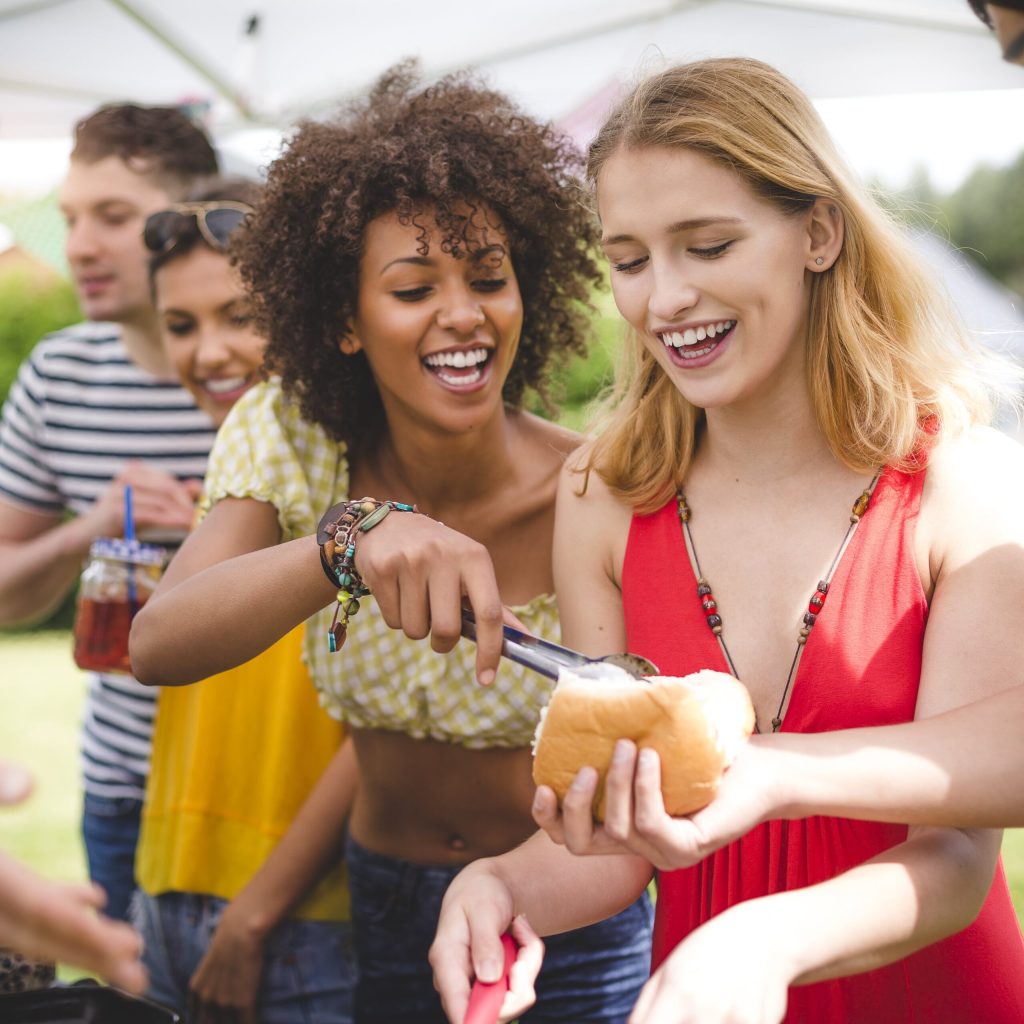The sun has finally decided to show its face, and with the warmer weather comes an influx of social events and invitations. After-work drinks, family trips to the beach, neighbourly BBQs, and music festivals with friends soon dominate our social calendars, and it can be pretty hard to say “no” when we feel like we have to capitalise on the sunshine after what felt like an endless winter.
But if you fail to schedule in alone time, it’s likely that being busy will deplete you of your energy – regardless of whether or not you identify as an introvert or extrovert – and that can only end in one way: a “social hangover”. Much like its alcohol-induced sister, a social hangover describes a set of symptoms which mental health and wellness experts are coining as a result of too much socialising.
“[A social hangover] is a colloquial phrase used to describe the emotional aftermath of intense socialising.”
Smriti Joshi, the chief psychologist at Wysa tells POPSUGAR that while “a social hangover is not a diagnosable clinical condition or a medical term, it is a colloquial phrase used to describe the emotional aftermath of intense socialising.” Feeling overwhelmed, fatigued, lethargic, anxious, and experiencing brain fog isn’t only reserved for “hangxiety” after a night of a little too much prosecco; it can also be caused by the stress of social situations. Susanna Kenyon-Muir, an accredited life coach, says that social hangovers can cause you to feel “overwhelmed from all the pressure of always having to conform, like meeting your friends, or doing what others like family, or colleagues want you to do”.
Although burnout can also be caused by chronic stress (which can also occur as a result of too much socialising), it’s important to note that burnout and a social hangover are not the same condition. “Burnout is a more severe condition that can lead to depression, anxiety, and physical health problems, while the latter is a colloquial phrase used to describe the emotional aftermath of intense socialising,” Joshi says. “A social hangover is usually a one-off occurrence, or happens only after an intense social occasion, whereas burnout is ongoing and intense.”
One self-professed social addict is Content Director Joely Chilcott, who finds it difficult to put her foot down when it comes to event invitations. “There is no real ‘typical weekend’ for me at the moment, it’s a whirlwind of plans,” she tells us. “I feel like I’m constantly playing catch-up and trying to fit all my friends and family in, but spreading myself thin.”
This year in particular marks a hurricane of weddings and hen weekends for the 34-year-old. Last weekend, Chilcott spent Friday and Saturday at a wedding, before organising a family get-together on Sunday – never mind recently returning from a busy 24-hour trip to Cannes. “This often means no downtime at all with weekends away and non-stop socialising,” she explains.
While Gen-Z are generally better at setting healthy boundaries in the workplace and in their personal lives – with 80 percent of 18-25 year olds believing that maintaining their own self-care is their top priority when it comes to their relationships, according to Tinder – this doesn’t mean that our own wellbeing doesn’t sometimes slip through the cracks at times in the name of a fun night out.
Chilcott, who finds herself in the millennial generation, struggles to say “no” to her friends and family’s well-intentioned invites. “With different groups of people, often making small talk so as not to appear rude, it’s taking all of my energy just to get out of the door,” she says, adding that it’s often easier to go along with their plans. “It’s too much, but how can you turn down an invite without a reasonable excuse? Saying ‘I’m tired’ just won’t cut it. Honestly, when I’m so exhausted, I haven’t got the energy to argue.”
“Are you feeling overwhelmed, tired, exhausted, and drained of energy?”
If your social calendar has plans in every spare moment, then it’s not a bad idea to check in with yourself. “First take note of any of the above symptoms; are you feeling overwhelmed, tired, exhausted, and drained of energy?” Kenyon-Muir says. “Then when you’re confronted with a choice of social activities, connect with what you really want to do. What does your heart say? If you don’t want to and you’re feeling tired, or burned out, give yourself permission to say ‘no’.”
If despite all your best efforts (and that will mean saying no to going out sometimes), you’re still curing yourself of a social hangover, make sure you take some time in the diary to rest and reset. “Try not to have too many busy and sociable days back to back,” Joshi advises. “Find some solo activities such as reading, crafting, or going for a walk.” It can help to actually put some downtime in the diary, too. Sometimes, if it’s written down or blocked out, then you feel like you’ve officially got a plan and can turn down other invites – even if that hour is for you to have a bath.
“Prevention is always better than cure,” Joshi adds, which means that there are things you can do to prepare yourself if you do have lots of plans in the diary. “If you know you have a social event coming up, take some time to prepare yourself mentally and emotionally. Set boundaries and let people know how much socialising you can handle before you start to feel overwhelmed.” She also suggests taking breaks from whatever social activities you have planned, or understanding when your mind and body are tired, and when it’s time to hit the hay. Whatever you’ve got planned this summer, one thing is for sure, we’re being kind to ourselves this 2023 – and so should you.

